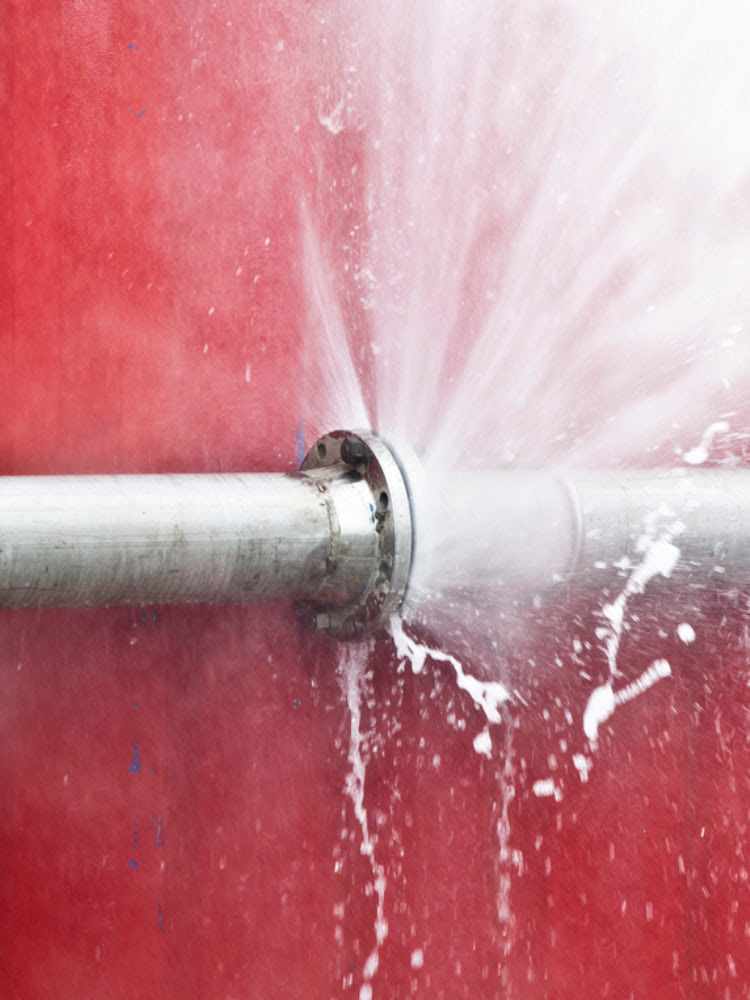Pinpoint Major Factors for Water Leakage in Your Home
Pinpoint Major Factors for Water Leakage in Your Home
Blog Article
Nearly everybody is bound to have their private way of thinking on the subject of Common Water Leaks In House.

Leaks not only trigger waste of water yet can also trigger unneeded damages to your residence and also advertise unwanted natural development. Water leaks may go unnoticed because most of the pipework in our house is hidden. By comprehending as well as looking for day-to-day circumstances that trigger leaks, you can protect your residence from future leakages as well as unnecessary damages. Today, we will look at 6 leakage creates that may be creating your pipes to drip.
Immediate temperature level adjustments.
Extreme temperature modifications in our pipes can trigger them to increase and also contract all of a sudden. This growth as well as tightening may create splits in the pipelines, specifically if the temperature are below freezing. If you kept an eye on how your plumbing functions, it would be best. The visibility of the previously discussed scenarios regularly shows a high risk.
Rusty water systems
As time goes by, your plumbing system ages as well as corrosion such as corrosion may start eating away the pipes. This may be the reason for staining or bending on your pipes. This requires an inspection with your plumber quickly. Consider replacing the pipes because they are at a greater risk of deterioration than the newer versions if our plumbing system is old.
Faulty Pipe Joints
The factor at which your pipes attach is regularly the weakest link in the waterline. Pipeline joints can degrade in time, causing water leaks. Regrettably, the majority of pipeline joints are not easily noticeable. If you have noisy pipelines that make ticking or banging sounds, especially when the warm water is activated, your pipe joints are most likely under a great deal of stress. It is recommended to have your plumber check your system annually.
Elbowing in origins
Many water leakages start outside the residence rather than inside it. You may notice wet spots or sinkholes in your yard, and also that might indicate that tree origins are getting into water lines creating water to seep out.
Poor Water Connectors
At times, a leakage can be caused by loose hose pipes and also pipelines that provide your appliances. Usually, shifting is what causes the loose water Connections. You may locate when it comes to a cleaning machine, a pipe may spring a leak because of trembling during the spin cycle. In case of a water connections leak, you might notice water running directly from the supply line or puddles around your home appliances.
Blocked Drains
Clogged drains pipes could be aggravating as well as inconveniencing, but they can sometimes wind up creating an overflow leading to rupture pipes. Keep removing any products that may decrease your drains pipes that can block them to avoid such troubles.
All the above are root causes of leakages however not all water leaks arise from plumbing leakages; some leakages may originate from roofing system leakages. All leaks must be fixed promptly to prevent water damages.
Leakages not just create waste of water yet can likewise trigger unneeded damages to your residence and advertise undesirable organic growth. By looking and also comprehending for everyday circumstances that trigger leakages, you can secure your house from future leakages as well as unneeded damage. Today, we will certainly look at six leakage creates that might be causing your pipelines to leak.
At times, a leak can be triggered by loose hose pipes and pipes that provide your appliances. In instance of a water links leakage, you may notice water running straight from the supply line or pools around your home appliances.
How To Check For Water Leak In Your Home
How To Check for Leaks
The average household's leaks can account for nearly 10,000 gallons of water wasted every year and ten percent of homes have leaks that waste 90 gallons or more per day. Common types of leaks found in the home are worn toilet flappers, dripping faucets, and other leaking valves. These types of leaks are often easy to fix, requiring only a few tools and hardware that can pay for themselves in water savings. Fixing easily corrected household water leaks can save homeowners about 10 percent on their water bills.
To check for leaks in your home, you first need to determine whether you're wasting water and then identify the source of the leak. Here are some tips for finding leaks:
Take a look at your water usage during a colder month, such as January or February. If a family of four exceeds 12,000 gallons per month, there are serious leaks.
Check your water meter before and after a two-hour period when no water is being used. If the meter changes at all, you probably have a leak.
Identify toilet leaks by placing a drop of food coloring in the toilet tank. If any color shows up in the bowl after 10 minutes, you have a leak. (Be sure to flush immediately after the experiment to avoid staining the tank.)
Examine faucet gaskets and pipe fittings for any water on the outside of the pipe to check for surface leaks.
Undetected water leaks can happen without the home or business owner even realizing. If you suspect a water leak, but not able to find the source. It is time to contact a professional water leak detection service, The Leak Doctor.
How To Find a Water Leak In Your Home
https://www.leakdoctor.com/blog/How-To-Check-For-Water-Leak-In-Your-Home_AE197.html

As a serious reader about How to Find Water Leaks, I assumed sharing that blog post was a great idea. Are you aware of anybody else who is sincerely interested in the topic? Feel free to promote it. We enjoy reading our article about How to detect water leaks in your home.
Always ready, contact! Report this page